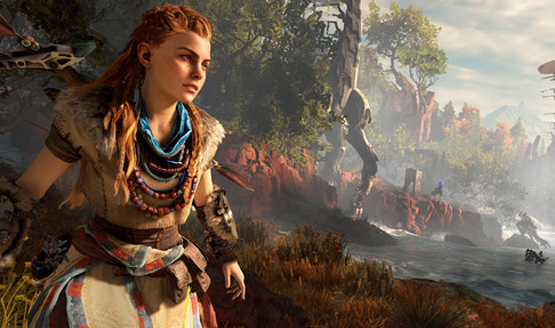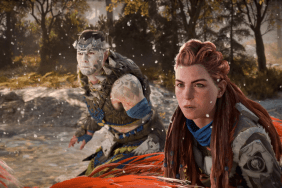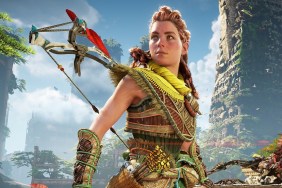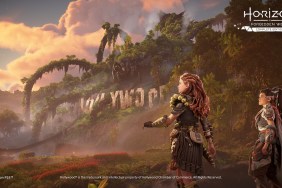Horizon Zero Dawn, Guerrilla Games’ primordial new IP, won’t make its mighty debut in 2016 after all. Confirming early rumors to be true, the studio’s post-post-apocalyptic RPG has now officially been pushed out of the holiday window and into 2017, following in the footsteps of The Order: 1886 and Uncharted 4: A Thief’s End which were both subject to similar treatment in years prior.
As it stands, Sony is now three for three on high-profile PS4 exclusives missing their fall due dates, resulting in a scant first-party lineup in and around the Q4 corridor. But should the PlayStation Faithful be concerned? Or is the holiday window not as important as it once was? Better yet, is Sony really at fault for stoking artificial expectations?
On the eve of E3 2016, it’s a point of contention that will no doubt be dragged kicking and screaming into the spotlight once more, with the industry’s heavy-weights set to parade their wares at the annual trade show with glistening trailers and, potentially, release dates/windows to boot.
Artificial Expectations
Whether companies are guilty of establishing and eventually perpetuating these artificial expectations is something we discussed in our latest Top 5 episode — one designed to recount all of our own gripes with the annual trade show bonanza — but with Horizon Zero Dawn, it really comes down to Sony’s handling of publishing duties.
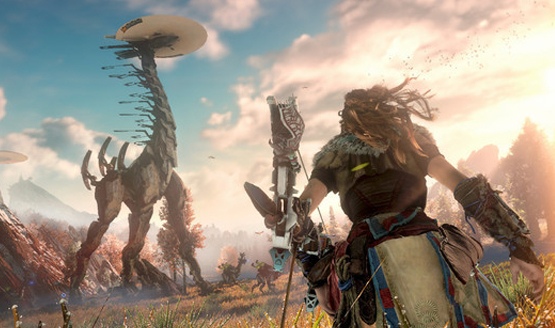
The Japanese platform-holder is certainly not the only company in the industry to shake up its release slate and without question, there are many more elements in play than a studio simply requesting more time to add an extra sheen of polish — marketing logistics, pre-order boons, quarterly financials, PR targets, unforeseen development woes, and increased competition all factor into the decision. Also, perhaps Sony is fine-tuning its slate in anticipation of the all-but-confirmed PlayStation 4.5?
The Delay Pandemic?
Either way, in the case of Horizon, Guerrilla’s heartfelt statement will be familiar to anyone who kept pace with The Division’s prolonged development, or that of No Man’s Sky or…you get the drift.
“It wasn’t an easy choice to make; we know many of you have been anxious to play the game since we first announced it. However, we also want to ensure that Horizon Zero Dawn lives up to the visuals and gameplay quality that our games are known for. The new date affords us the extra time required to deliver fully on our ambitious vision for Horizon Zero Dawn.
“We realize that this decision may not please everyone. At the same time, we’re confident that the advantages of the additional development time afforded by the new date will become clear in the coming months, as we start to share more cool details and videos from Horizon Zero Dawn.”
Let’s not forget that delaying a game isn’t a decision that is taken lightly, and has a rippling effect throughout the industry. Production budgets balloon, development resources are often realigned, and would-be early adopters grumble with a mixture of disappointment and renewed optimism; after all, a delayed game is eventually good…and you’ve heard this quote ten times already.
Point is, in the past fortnight alone, No Man’s Sky, Playtonic’s Kickstarter darling Yooka-Laylee and Persona 5’s western debut have all been nudged further down the pipeline and, unsurprisingly, the Internet has been awash with well-rounded complaints and, sadly, deplorable death threats.
Beyond the vitriol, though, are these postponements symptomatic of publishers adhering to a timeline that is essentially outdated? Or at least, one in need of change to reflect relatively larger production cycles? We’ve seen it many times before; games announced too early that eventually go on to saturate the market (Watch Dogs, The Division, No Man’s Sky — you name it), as a company’s promotional push ebbs and flows in parallel with the altered release timeline.
Take Bethesda’s approach with Fallout 4. A franchise of Fallout’s stature will always garner feverish speculation, and even before Bethesda unveiled its RPG sequel, a Boston setting was practically a foregone conclusion. But by minimizing the window between announcement and release, Bethesda held the upper hand in that it could not only manage expectations, but also nurture user demand at a steady rate in the build up to launch.
Benefit of the Doubt?
When it comes to Sony, it’s no secret that the PlayStation 4 touched down on the market three years ago with a limited first-party lineup. Outside of Killzone: Shadow Fall and The Order: 1886, that scarcity really continued right up until the arrival of Uncharted 4: A Thief’s End — a title that wasn’t without production problems of its own — back in May, and that Naughty Dog’s masterpiece arguably stands as PlayStation 4’s first true, first-party system seller three-and-a-half-years into its lifecycle is food for thought.
Perhaps it’s all the more impressive, then, that lifetime sales of PlayStation 4 only continue to climb at a pace not seen since the PS2. Simmering north of 40 million worldwide as of May 22, 2016, Sony’s current-gen hardware shows no sign of slowing up despite those aforementioned delays.
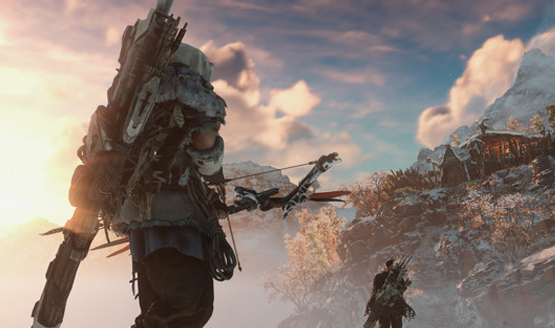
As a matter of fact, if the infectious excitement of a new console generation spurred PS4 sales in 2014, and third-party partnerships with Star Wars Battlefront and Call of Duty: Black Ops 3 helped maintain momentum the following year, then the arrival of both PlayStation VR and Gran Turismo Sport ought to offset the disappointment of Horizon’s delay in 2016.
That’s before we even factor in the possible announcements at E3. Indeed the Los Angeles trade show represents a crucial opportunity for Sony to bolster its first-party lineup for 2016 and beyond and if the recent flurry of rumors is any indication, next week may very well herald the unveiling of God of War 4 (rooted in Norse mythology, potentially) and Sony Bend’s PS4 exclusive. There’s also the small matter of Detroit: Become Human and Team ICO’s fabled The Last Guardian and if even two of that quartet secure 2016 release dates, PlayStation 4 users can take solace in the fact that the holiday lineup won’t be as sparse as years gone by.
Without regurgitating that famed Shigeru Miyamoto quote about video game delays, Horizon Zero Dawn deserves its extended development period — new IP, new risks and whatnot — we only wish Sony has taken a leaf out of Bethesda’s book and avoided the disappointing delay in the first place.
When all is said and done, Horizon Zero Dawn will roar to life on February 28, 2017 in North America — and really, we’re okay with that.
Essential Reading:
- PS4 Games That Can Steal the Show at E3 2016
- Editor’s Letter – E3 2016 Press Conference Schedules and PSLS’ Coverage
- E3 2016 Sony First Party Studios – What We Know So Far
E3 2016 and Sony First-Party Studios – What We Know So Far
-
E3 2016 and Sony First-Party Studios – What We Know So Far
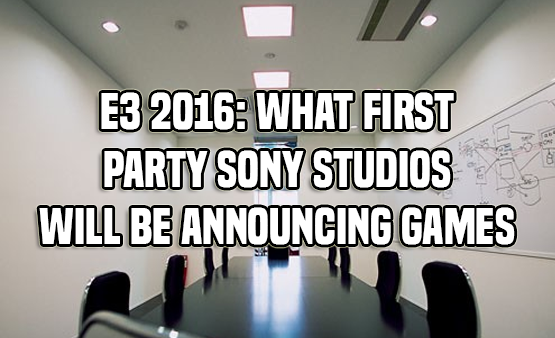
-
Bend Studio

Latest Release: After releasing the Vita launch title Uncharted: Golden Abyss, Sony's Bend Studio took a different take on the Uncharted series by creating a card game based on Sony's popular franchise. Uncharted: Fight for Fortune ended up being a surprisingly deep card game, and showed that the talented studio could do more unique ideas.
What They Are Working On: According to job listings, Bend Studio is currently working on a PS4 title. Not much else is known about the game, but hopefully the developer is working on their own series. It's a lock to see at E3 this year, and here's to hoping that Sony Bend gets to do something truly original.
-
Guerrilla Cambridge
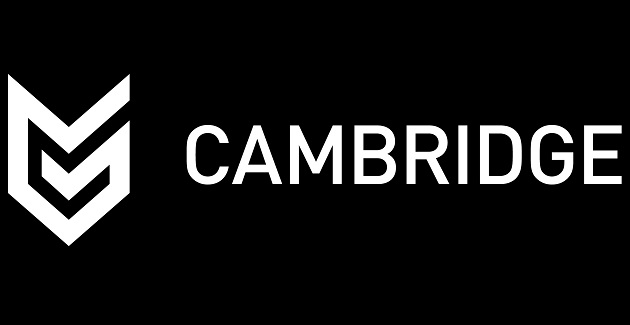
Latest Release: Guerilla Cambridge were last seen when they put out one of the most high profile Vita releases, Killzone: Mercenary. While the game had some issues, it did a good job of providing first person shooter fun on the go.
What They Are Working On: Despite their job listings stating that they were working on a "high profile, multi-million selling franchise," Guerrilla Cambridge was announced to be working on an original game called RIGS. It looks to be one of PlayStation VR's major launch titles, and we can't wait to see more of this competitive shooter.
-
Guerrilla Games
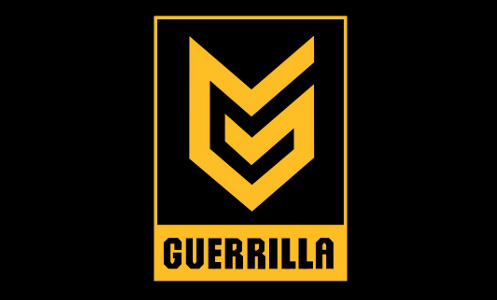
Latest Release: Guerrilla Games is basically the Killzone studio as they have worked on the franchise exclusively since 2004. Their latest game in the series was the PlayStation 4 launch title Killzone Shadow Fall.
What They Are Working On: Guerrilla Games won't just be known for Killzone any longer as they're now working on a third-person action game called Horizon Zero Dawn. The impressive looking PS4 exclusive was announced last year, and will be one of Sony's big games for 2017.
-
Japan Studio
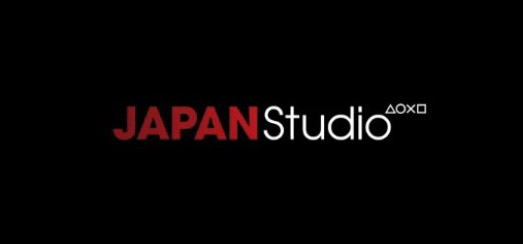
Latest Release: PlayStation 4 launch title Knack was the last title the studio developed by themselves, but they've done plenty of support work with other Japanese developers.
What They Are Working On: SCE Japan Studio is comprised of several teams so they are currently working on several projects. Team Ico is working on The Last Guardian, which should finally get a release date this year. Meanwhile, Team Gravity (who have worked on Siren in the past) are working on Gravity Rush 2. Don't be surprised if we see a smaller scale game or a collaborative effort come out of Japan Studio announced during this E3.
-
Media Molecule
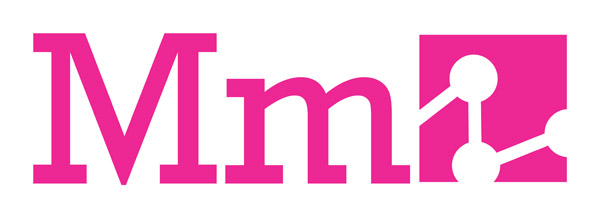
Latest Release: Media Molecule brought their fantastic Vita game to PlayStation 4 last year in Tearaway Unfolded. Sadly, it once again failed to find a sizable audience.
What They Are Working On: Their new game is called Dreams, a 3D sandbox creation tool. It focuses on the same core concepts as LittleBigPlanet as players will "play, create and share." We'll probably get a beta date announced at E3, and hopefully a firm release date for this ambitious title.
-
Naughty Dog
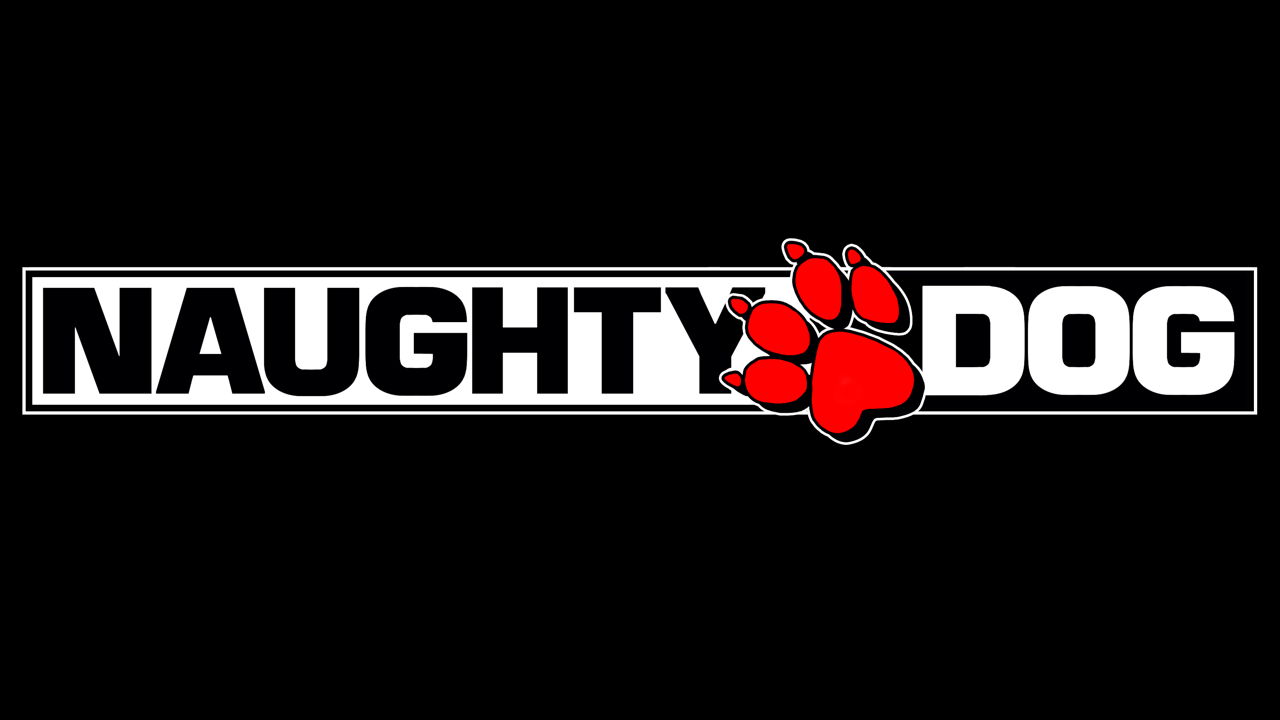
Latest Release: Naughty Dog just released a small title by the name of Uncharted 4, it's understandable if you haven't heard of it.
What They Are Working On: While Naughty Dog is comprised of two teams, and one just wrapped up working on Uncharted 4: A Thief's End. That means another title has been in development for at least a year now, and we're expecting to see what else Naughty Dog has been doing at E3 this year.
-
Pixelopus
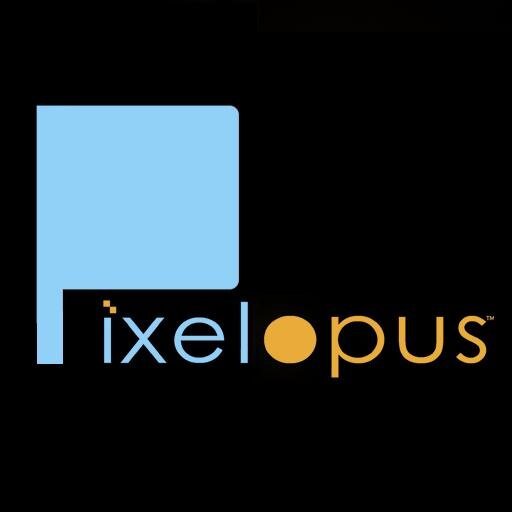
Latest Release: Pixelopus is a small studio based out of California. Their first release was Entwined.
What They Are Working On: Pixelopus revealed on Twitter that they are working on their second project. It's been almost two years since the release of Entwined, so there's a chance we get a surprise E3 release again.
-
Polyphony Digital

Latest Release: Polyphony Digital are better known as the studio that makes the Gran Turismo series. It is no surprise that their last release was 2013's Gran Turismo 6.
What They Are Working On: The studio is currently working on Gran Turismo Sport. It's set to release later this year, and there's not really more to be revealed about it. Don't be surprised if it's only seen in a sizzle reel.
-
Santa Monica Studio
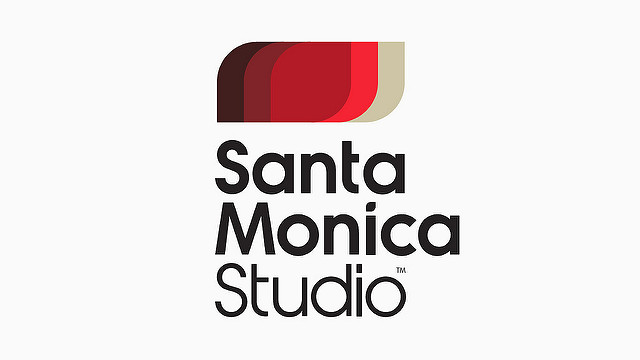
Latest Release: Much like Sony Japan, Sony Santa Monica does a lot of support work in addition to their original games. Their last internally developed game was God of War: Ascension.
What They Are Working On: As far as internal projects go, Santa Monica Studio are currently working on a brand new entry in the God of War series. Expect God of War IV (hopefully not God of W4R) or a reboot to get a big reveal this year.
-
London Studio
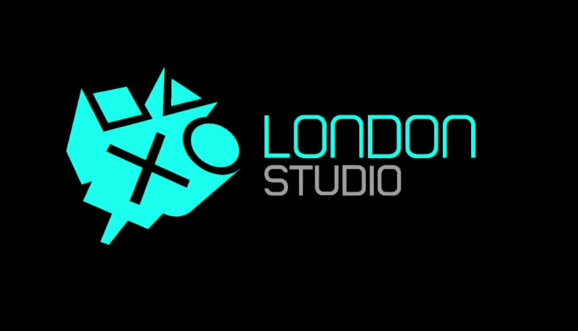
Latest Release: Sony's London studio has a more casual game focus than its other studios and has done a ton of work on Sony's Singstar series. Their last release was SingStar: Ultimate Party on PS4.
What They Are Working On: London Studio are currently working on PlayStation VR Worlds, a launch title for PlayStation VR.
-
San Diego Studio
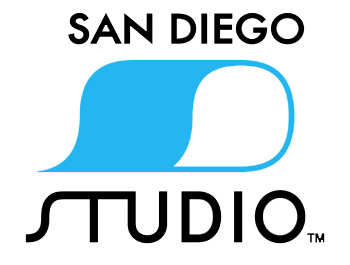
Latest Release: Sony San Diego Studio's most recent release was MLB 16: The Show. Their release before that was MLB 15: The Show. Do you see the pattern?
What They Are Working On: While they are inevitably working on MLB 17: The Show, San Diego Studio has also been working on Kill Strain. A top-down third person shooter that should get out of beta later this year.
-
Sucker Punch Productions
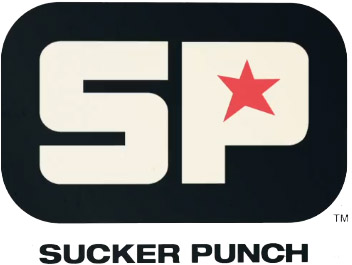
Latest Release: Sucker Punch is the studio behind both the Sly Cooper and inFAMOUS series. Their latest release was 2014's inFAMOUS First Light.
What They Are Working On: We're going on 2 years since Sucker Punch last released a game, and we know they've been hiring lately. That's all good news, and it looks like we might get an unveil at this year's E3 unless Sony wants to sit on what is likely a 2017 release.
